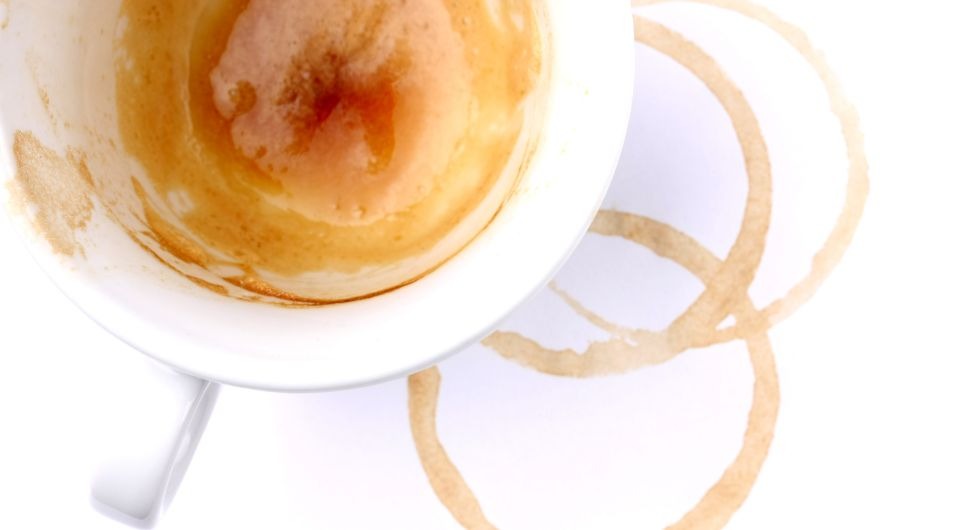
Posted on: 08 December, 2022
Different types of teeth staining and discoloration have different solutions.
3 minute read
Teeth can lose their whiteness over time for many different reasons. If you're thinking about cosmetic dentistry treatments to restore a naturally whiter smile, knowing why your teeth have discoloured is the first step, because not all treatments will be effective or suitable.
Teeth stains and discolouration have two categories, extrinsic or intrinsic:
Following are six of the most common causes of extrinsic and intrinsic tooth staining and how they can be prevented. Got questions about your correcting a yellowing or discoloured smile? Get in touch today.

Plaque and tartar that builds up on teeth surfaces can cause them to look yellow or brown, as well as wearing down the tooth and forming cavities.
Good brushing and flossing and limiting sugar in your diet help to keep plaque under control. A dentist or hygienist can also remove built-up plaque and tartar during your regular dental visits.

Food and drinks with strong colour pigments can leave stains on your teeth, especially if you have them frequently. Some of the worst offenders are red wine, tea and coffee, soft drinks, berries and tomato-based sauces, but there are many more.
If you don't want to give up favourite drinks entirely, you can reduce contact with your teeth by drinking through a straw and not holding the liquid in your mouth before swallowing.

If you need another reason to kick the habit, stains from smoking or chewing tobacco can also cause teeth to turn brown. The more you smoke, the more likely stains are to form.
Smoking is a risk factor for many oral health problems, and quitting or cutting down will lower your risk of gum disease, dry mouth and oral cancer, among other serious health concerns.

Injuries or other trauma to teeth can cause them to darken or turn grey. This can sometimes happen after a tooth is treated with root canal therapy.
This intrinsic discolouration can't be treated with whitening gels like surface stains, but the tooth may be covered by a prosthetic such as a veneer or crown made from porcelain or other materials in a lighter shade.

Intrinsic tooth discolouration can be a side effect of certain medications, including some antihistamines, antipsychotic drugs and high blood pressure medications. The antibiotic tetracycline may also cause teeth to discolour when given to children.
You should consult with your doctor if you're considering any change to your medication. They may be able to recommend an alternative that won't affect your teeth.

Even if you take good care of your teeth and avoid common sources of stains, teeth can still lose their whiteness over time. As the translucent enamel wears down through normal use, this exposes more of the dentine layer underneath, making teeth look more yellow. This also makes teeth more prone to staining.

At Mount Lawley Dental, we offer professional teeth whitening kits that can be used in the convenience of your own home. A teeth whitening kit provided by a qualified and registered dentist includes custom-made trays that have been designed from impressions taken of your teeth and can whiten a smile in just two weeks. The advantage to choosing a home kit is that you can take a break or top up whenever you like. Our whitening kits are specially formulated to be used by people who suffer from sensitive teeth.
The cost of a teeth whitening kit is $400. Contact the Mount Lawley Dental team to see if professional whitening is right for you.
The process for teeth whitening at Mount Lawley Dental is straight-forward:
For best results, we recommend that you’ve had a dental check-up within the last 12 months and a dental clean within the last few months before starting treatment.
The dentists at Mount Lawley Dental offer a number of cosmetic dental restorations to cover up internal stains.

Veneers are made of either porcelain or composite resin and are a cosmetic solution for masking intrinsic tooth stains. Porcelain veneers are like fake fingernails that sit over the front of a prepared tooth masking flaws. They are custom-designed in a dental laboratory according to your desired shape, shade and size and then bonded to the tooth. Composite on the other hand, is coated directly on to the tooth and then shaped to blend in seamlessly with surrounding teeth.
Porcelain veneers may last between seven to 15 years, while composite veneers may last between four to eight years with proper care.

A crown is a custom-made zirconia cap that is designed in a dental laboratory and sits over the entire tooth. Crowns have both functional and aesthetic purposes as they help to change the aesthetic appearance of a tooth and also strengthen the tooth at the same time.
Dental treatments may be combined for a complete smile makeover to address both intrinsic and extrinsic stains.
The process for placing a crown and porcelain veneer are similar. They each involve the following stages:
With proper care, a zirconia crown is designed to last between five and 15 years.
If you're considering teeth whitening, veneers or other cosmetic treatments to enhance your smile, book a consultation with our experienced dentists at Mount Lawley Dental to learn more about your options and what to expect.
Call our friendly team on (08) 9227 8777 or book an appointment online. We also welcome patients from Highgate, Inglewood and other nearby areas.